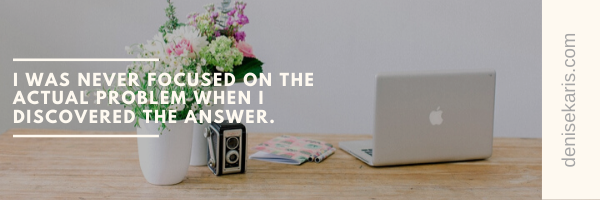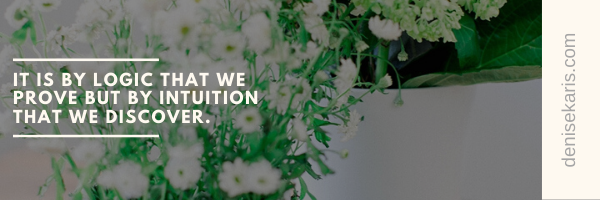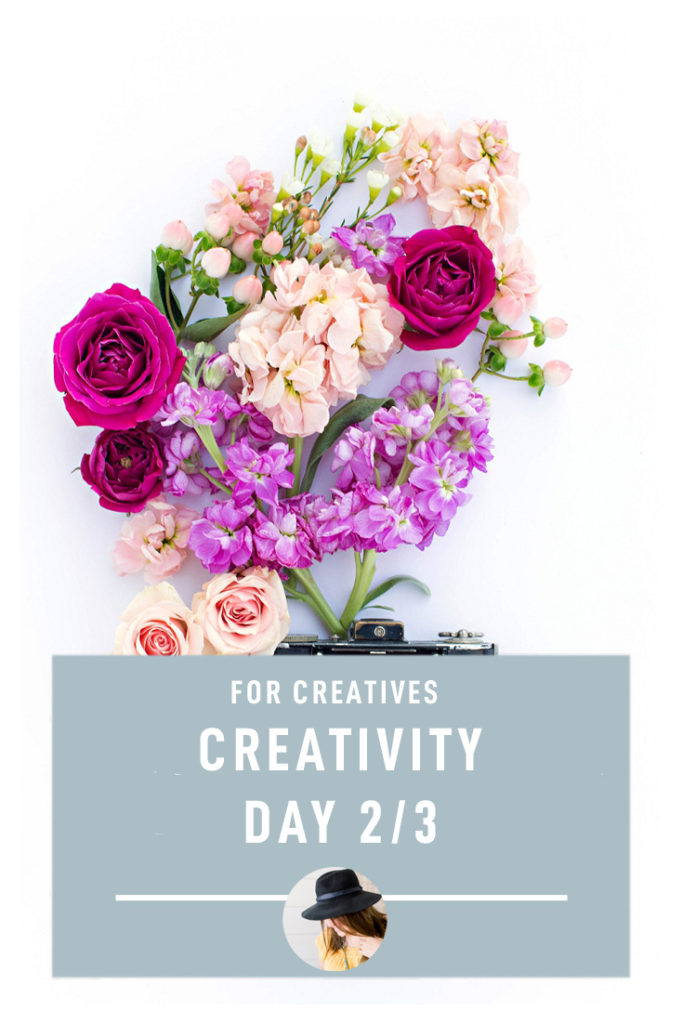Creativity Day 2/3
Did you miss day one? Click here to catch up!
In the third century BC, the King of Syracuse is suspicious that his new crown is not made of pure gold. So he calls the Scientist Archimedes to test the new crown for purity. Archimedes is stumped. He has no idea how to test for purity in this new crown. Later when he’s taking a bath, he sees the water levels in the bath rise and realizes he can use displaced water to test the crowns density to find the purity of the gold. He then runs naked through the streets shouting “Eureka!” which translates to “I’ve got it!”
You probably know this story or some variation of it and have likely experienced a “Eureka” moment in your own life. For me, those are some of my favorite moments. When you finally land on the solution to a problem that’s been plaguing you for days or you travel down a path that leads to a revelation to something you previously didn’t understand. It’s fun to have a Eureka moment but there’s one important factor that stands out in nearly every Eureka moment in my life:
I was never focused on the actual problem when I discovered the answer.

If you’ve ever watched the show House, you’ve seen this a million times. Dr. House will be focused on a patient nearly the entire episode; the symptoms, the medications, the medical history… but it isn’t until he steps away to play chess with his friend or to torment his boss that the solution comes to him. This happens in nearly every single episode. Seriously.
In a Ted Talk by Duncan Wardle, he talks about how we always seem to think of the perfect thing to say in an argument…after the argument is over. It isn’t while you’re knee deep in the argument, it’s when you’ve stepped away and you’re at the gym or in the shower that that perfect one liner comes to you.
Another real life example is the mathematician Henri Poincaré who believed in working two hours in the morning and two hours in the evening with the intervening time left for his subconscious to continue working on the problem at hand. Poincaré relied on intuition, believing “It is by logic that we prove but by intuition that we discover.”

Following this same theme, while writing this article, I took an intentional break in the hopes something new would come to me to add to this post. During my break, I watched the next episode in line for me of Marvelous Mrs. Maisel which happened to be season 2, episode 3 where the main character’s father was giving a lecture to his students and spoke about the mathematician Henri Poincaré who I had never heard of before but fit perfectly into this article. The Universe has a remarkable way of delivering exactly what you need when you need it.

Keep those eyes open.
As you can guess, day 2/3 on creativity is all about stacking the odds in your favor to get more of those fabulous Eureka moments. The first and most effective method is to step away. Do something else. When you’re hyper focused, the door to your subconscious (aka 80% of your entire brain) is closed. By stepping out of that mode, you let the door to your subconscious open so you can have access to that part of your brain where all that magic happens.
As Author Jonah Lehrer says, “Different kind of creative problems require different kinds of creative thinking.” So the second method of reaching that Eureka moment is to reframe your problem.
I’ve heard this presented a few different ways over the years. One was in that same Ted Talk mentioned above where he has the audience brainstorm what is needed to start up a car wash. What does your list include?
Soap
Towels
Vacuums
Wax
Your list might stop shortly after that as mine did but then he has the audience brainstorm what might be needed to open an auto spa instead. Magically, your brain shifts gears and you’re coming up with:
Music
Barista
Refreshments
Lounge chairs
Car air fresheners
Tire polish
Detail services
I’ve also seen this presented in a different way. When you ask someone what 5+5 is, there is only one right answer and you’ll get it. It’s ten. All day, that’s the only answer you’ll get. But if you ask someone what two numbers add up to ten… then you have a new space for new answers.
Reframe the question and you’ll get different answers, or as Duncan Wardle says, “Re-express the Challenge.” (Really, his Ted Talk is amazing and hugely inspirational. Watch it here!)
Lastly, when those fabulous Eureka moments happen, celebrate them! Write them down! Enjoy the moment and take a look around to see what got you there! Each time you do this, you’re paving the way for an infinitely valuable habit to form.
Friends, that’s day 2/3, I’ll see you tomorrow for our last day in this series!
 | Denise Karis is an Arizona photographer who enjoys musicals, Doctor Who and breakfast burritos. IG @denisekaris |


